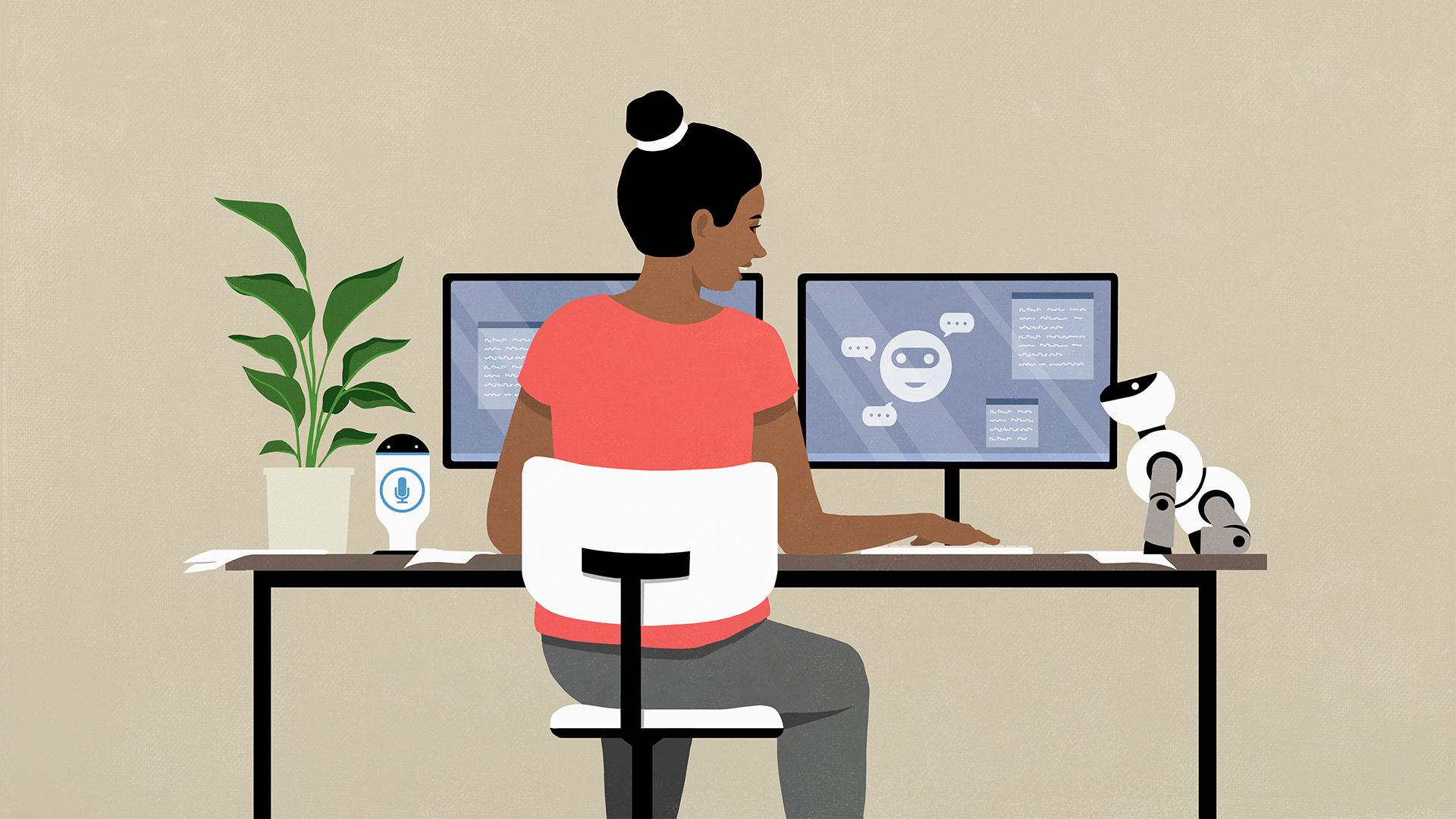Women in tech are plagued by imposter syndrome – here are three tips to overcome lingering doubts
Imposter syndrome among female tech workers gets worse as careers progress


More than two-thirds of women in tech experience imposter syndrome, according to new figures, prompting calls for greater support from employers.
In a survey of tech professionals for recruitment firm Hays, 68% of women said they'd faced imposter syndrome at some stage in their career, compared with just 61% of men.
"We cannot overlook the fact that more women doubt what they are capable of than men," said Amanda Whicher, technology director at Hays UK & Ireland.
"This imposter syndrome imbalance both stems from and exacerbates the lack of female representation across the tech sector, so it’s crucial that we take the necessary steps to overcome this phenomenon."
Meanwhile, those working in the private sector were slightly more likely to experience imposter syndrome, at 65%, with it affecting only six-in-ten in the public sector.
Overall, it's a problem that affects 64% of tech professionals, making the workers in the tech industry the most likely to experience this issue.
Hays found that the second most affected industry, accountancy, has a 61% rate, with engineering, construction and property, and marketing all at or below the 50% mark.
Sign up today and you will receive a free copy of our Future Focus 2025 report - the leading guidance on AI, cybersecurity and other IT challenges as per 700+ senior executives
Similarly, around a third of those working across the tech industry said that they had been experiencing imposter syndrome more frequently as their career progressed.
How to tackle imposter syndrome
Whicher said there are practices workers can employ to address imposter syndrome.
"Recognize that imposter syndrome is not a reflection of reality but a negative feeling from your inner critic,” she said. “Secondly, focus on your strengths and achievements to improve your confidence.”
Another approach recommended by Whicher included embracing imperfection and the ability to be “willing to make mistakes”. These are an opportunity to grow, she added, and are vital in driving career progress.
"Employers have a vital part to play in celebrating the successes of their workforce and rewarding them accordingly, so they feel less like imposters and more like worthy and valued members of the team."
Research earlier this year from HR firm iCIMS found that four-in-ten women were experiencing impostor syndrome there and then, particularly when it came to AI.
Nearly a quarter of women reported feeling unprepared for AI-driven changes in the workplace and said they weren't sure how to adapt to the technology, compared with just 17% of men.
A similar study from Vodafone found that six-in-ten women were more likely to apply for a job if there were other women in leadership positions.
"Businesses can’t afford to lose out on top talent because women don’t see themselves reflected in leadership positions or have the time to invest in themselves," said Nicki Lyons, chief corporate affairs and sustainability officer at Vodafone UK.
"The data is clear – seeing women in leadership roles isn’t just about representation; it drives real change and opportunity. Women need senior role models to help feel inspired and supported in their own career progression."
MORE FROM ITPRO
- This tech company wants to pay staff to look after their mental and physical wellbeing
- Creating space for women in tech
- Women in tech think the industry has changed for the better, but there’s still more work to be done
Emma Woollacott is a freelance journalist writing for publications including the BBC, Private Eye, Forbes, Raconteur and specialist technology titles.
-
 What role does automation play when it comes to IT service management?
What role does automation play when it comes to IT service management?Supported Content ITSM will be a familiar element of many IT departments, but a changing tech landscape requires a new strategy
-
 Do businesses need IT operations management?
Do businesses need IT operations management?Supported content ITOM strategies’ focus on automation can speed up processes and free up IT staff, but it has its limitations
-
 Gender diversity improvements could be the key to tackling the UK's AI skills shortage
Gender diversity improvements could be the key to tackling the UK's AI skills shortageNews Encouraging more women to pursue tech careers could plug huge gaps in the AI workforce
-
 Is diversity still a challenge in the channel?
Is diversity still a challenge in the channel?Industry Insights Despite progress, diversity remains a challenge in the tech channel, as women represent less than a quarter of the UK’s tech workforce and still face structural and cultural barriers
-
 ‘Employees aren’t having it’: European workers are pushing back on the US-style ‘always on’ work culture – many are worried about the rise of ‘hustle culture’ and a third would quit if forced back to the office
‘Employees aren’t having it’: European workers are pushing back on the US-style ‘always on’ work culture – many are worried about the rise of ‘hustle culture’ and a third would quit if forced back to the officeNews New research shows European workers are pushing back on the 'always on' culture and fear US-style corporate policies creeping into workplaces.
-
 Women show more team spirit when it comes to cybersecurity, yet they're still missing out on opportunities
Women show more team spirit when it comes to cybersecurity, yet they're still missing out on opportunitiesNews While they're more likely to believe that responsibility should be shared, women are less likely to get the necessary training
-
 Imposter syndrome is pushing women out of tech
Imposter syndrome is pushing women out of techNews Men have dominated the tech space, though some evidence suggests that it's beginning to change
-
 DEI rollbacks could exacerbate tech talent shortages – nearly half of recruitment leaders worry diversity cuts will impact their company’s appeal and employee retention
DEI rollbacks could exacerbate tech talent shortages – nearly half of recruitment leaders worry diversity cuts will impact their company’s appeal and employee retentionNews Finding talent with AI skills has already become a major challenge for enterprises, but with some enterprises shelving DEI hiring practices, research suggests the situation could get worse.
-
 Women in tech think the industry has changed for the better, but there’s still more work to be done
Women in tech think the industry has changed for the better, but there’s still more work to be doneNews 84% of female tech leaders in the US believe the industry has changed for the better, but lingering issues still persist.
-
 Businesses know they have major skills deficits, but less than half plan on hiring more women
Businesses know they have major skills deficits, but less than half plan on hiring more womenNews Male IT leaders remain complacent about gender diversity despite widespread skills shortages
